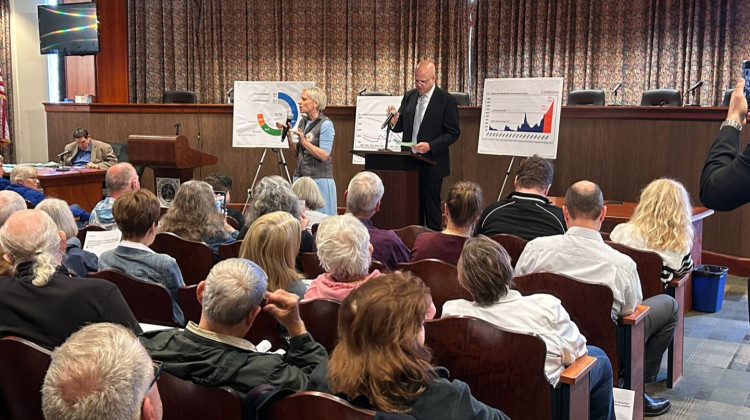Conservative groups in Indiana say a U.S. Supreme Court ruling may help their lawsuit against what they say are weakening religious freedom protections in the state.
The opinion, handed down Monday, found that Colorado baker Jack Phillips could not be required to make a custom wedding cake for a same-sex wedding.
The American Family Association of Indiana, the Indiana Family Institute and Indiana Family Action filed a "friend of the court" brief in the Colorado case, in hopes that the decision could help their effort to overturn the "fix" to Indiana's Religious Freedom Restoration Act.
In 2015, Indiana lawmakers passed RFRA, which says the state and local governments can't infringe on a person's ability to practice his or her religion unless they can prove a compelling reason to do so. After vocal opposition to the legislation, lawmakers added language – known as the RFRA “fix” – so the law couldn’t be used to discriminate against lesbian, gay, bisexual and transgender individuals.
The AFA of Indiana, IFI and IFA lawsuit against the RFRA "fix" also challenges ordinances in the cities of Bloomington, Carmel, Columbus and Indianapolis. Those local laws ban discrimination based on sexual orientation or gender identity.
Micah Clark, executive director of the AFA of Indiana, says he sees Monday's Supreme Court ruling as a green light for the groups to move forward with their legal challenges.
"There are cases all over the United States of people who have been punished by city governments or state governments on this issue and I think it’s a signal to them, and to those judges in those cases, that peoples' religious freedom needs to be protected," Clark says.
Others disagree.
Legal Director of the American Civil Liberties Union of Indiana, Ken Falk says he does not think the ruling will have a significant impact.
"I don't think it's going to affect my work because I think the decision is extremely narrow," Falk says.
He says the ruling focused on religious discrimination at the state level in Colorado, and would not have a bearing on similar cases where religious discrimination did not occur.
 DONATE
DONATE








 Support WFYI. We can't do it without you.
Support WFYI. We can't do it without you.